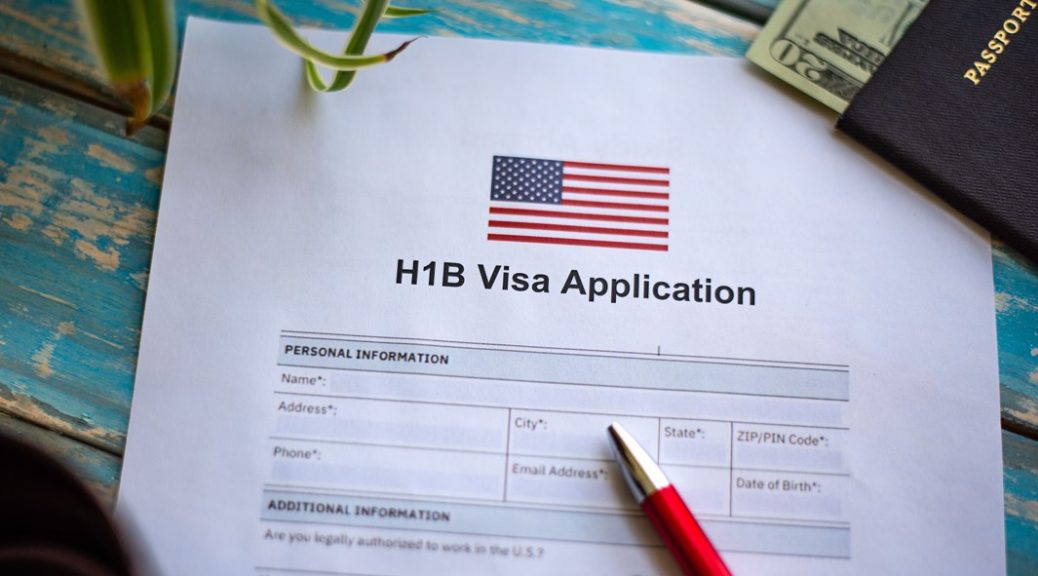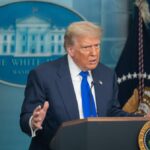As US President-elect Donald Trump prepares for a potential second term, his administration’s tough stance on immigration—including restrictions on the H-1B visa program—could have significant implications for India’s tech industry. However, a new report from the State Bank of India (SBI) reveals a silver lining: these policies might serve as a unique opportunity for India to further accelerate its “Atmanirbhar Bharat” (Self-Reliant India) initiative.
A Dual Impact on Indian IT Companies in the US
The H-1B visa has long been a crucial pathway for Indian IT professionals to work in the United States. However, Trump’s potential restrictions on the visa program threaten to disrupt the status quo for thousands of Indian companies operating in the US. The SBI report highlights how these restrictions could cause a surge in operational costs, as Indian firms may be forced to hire locally in the US at higher wages, thereby squeezing profit margins.
“H-1B visa restrictions can lead to decreased labor mobility, affecting the hiring capabilities of Indian IT companies operating in the US. This may result in Indian firms allocating resources towards hiring locally in the US at a higher cost, which could strain margins for companies,” the report states.
In other words, while the US market remains a critical source of revenue for many Indian IT firms, these new restrictions could push companies to rethink their business strategies and rethink their workforce dynamics, all while navigating an increasingly hostile regulatory environment.
Turning Adversity Into Opportunity: A Boost for Atmanirbhar Bharat
Despite the immediate challenges posed by H-1B visa restrictions, the SBI report suggests a surprising upside for India. In particular, it points to the potential for these disruptions to drive the government’s “Atmanirbhar Bharat” agenda forward. With tighter visa policies making it harder for Indian companies to expand their footprint in the US, India might look inward to focus more on strengthening its domestic manufacturing and technology sectors.
“While Trump’s policies may pose challenges, they also offer India an opportunity to strengthen its own domestic manufacturing through its ‘Atmanirbhar Bharat’ initiative. We may look to accelerate reforms in domestic production, self-reliance, and inward investment,” the report adds. This perspective suggests that India could take these setbacks as a springboard to enhance its local capabilities, reducing dependency on foreign markets and creating a more resilient economy.
The Historical Context: Trump’s Opposition to H-1B Visas
Trump has long been an outspoken critic of the H-1B visa program, which he believes undercuts American workers by allowing foreign nationals to take jobs in the US at lower wages. During his first term, his administration implemented several measures that sharply reduced the number of approved H-1B visa applications. In 2020, Trump even sought to impose higher wage requirements for H-1B workers, though this move was later blocked by the courts.
As Trump’s second term approaches, these same issues may resurface, with the potential for stricter enforcement of H-1B visa restrictions. This would undoubtedly create more hurdles for Indian IT firms looking to maintain or expand their presence in the US market, a market that has been vital to their growth for decades.
India’s Path Forward: A Strategic Opportunity for Self-Reliance
While these changes could present immediate challenges to Indian firms in the US, the SBI report argues that India can turn adversity into an opportunity to strengthen its economy. By accelerating the Atmanirbhar Bharat campaign, India could foster innovation in manufacturing, technology, and other key sectors, making it less reliant on foreign talent and investment.
The report suggests that India could focus on building a more self-sufficient tech ecosystem, investing in local talent, and encouraging more inward investment in critical industries. The government’s recent push to reform key sectors like defense manufacturing, renewable energy, and electronics could gain momentum in response to these external pressures.
Seizing the Moment for Long-Term Gains
India finds itself at a crossroads as the global landscape evolves and external pressures, like the potential tightening of the H-1B visa program, mount. However, as the SBI report suggests, these pressures could serve as a catalyst for India to accelerate its efforts toward greater economic self-sufficiency. The question now is whether India can harness this moment to transform its economy and reduce its dependence on external factors like the H-1B visa program.
In the coming years, India’s response to these challenges will play a critical role in shaping its position in the global economy. Whether it remains dependent on foreign talent or builds a more self-sufficient, robust economy will be key to determining its future growth and global standing.





